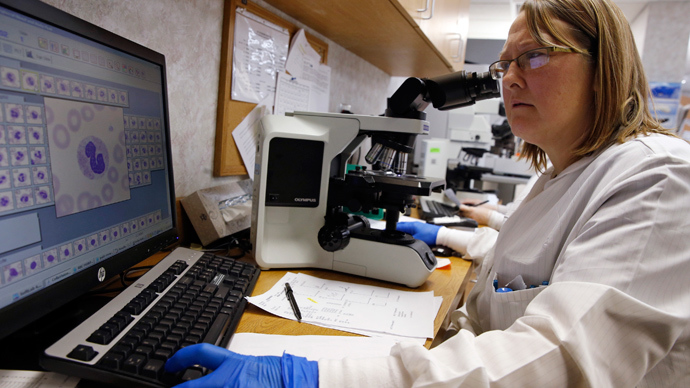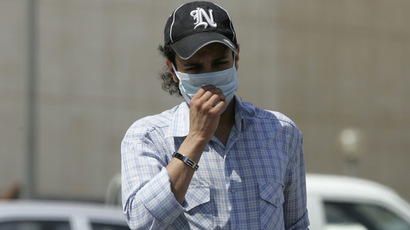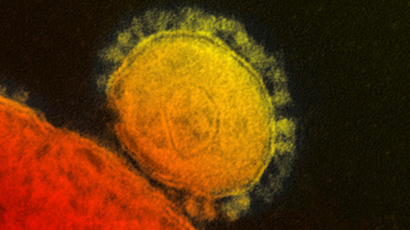Illinois resident tests positive for MERS but doesn’t fall ill

A man in Illinois has tested positive for Middle East Respiratory Syndrome (MERS) but has shown no signs of illness, US health officials say. The case may shed light on milder forms of the new deadly virus that kills 30 percent of those infected.
The man is a business associate of an Indiana resident who was confirmed as the first US case of the deadly Middle East virus, and likely contracted it from him. Though he did not seek or require medical help and is reported to be feeling well, a blood test on Friday showed he had developed antibodies to MERS, said officials at the US Centers for Disease Control and Prevention (CDC).
This is the third reported case of the mysterious disease on US soil. However, officials at the CDC are reluctant to announce it as a confirmed case of MERS since the laboratory test is preliminary and detected only antibodies – not the live virus.
"This latest development does not change CDC’s current
recommendations to prevent the spread of MERS," Dr. David
Swerdlow, who is leading the CDC’s MERS-CoV response, said in a
statement. "It’s possible that as the investigation continues
others may also test positive for MERS-CoV infection but not get
sick."
"There is evidence there is a broader spectrum of MERS"
than first expected, said Swerdlow.
He also added that the CDC will discuss with the World Health
Organization its system of classifying MERS cases to account for
milder cases.
The infected Indiana man is a healthcare worker who was
hospitalized in April after traveling to Saudi Arabia, where MERS
has already claimed over 500 lives. His case was confirmed on May
2, and the second case was announced on May 11 in Florida.
MERS is an entirely new virus and there are no drugs to treat it
and no vaccines capable of preventing its spread. The disease,
which originates from the Arabian Peninsula, causes coughing,
fever, and sometimes fatal pneumonia. Reported cases have tripled
in the past several weeks.














